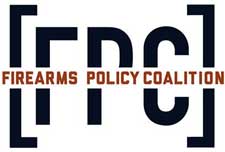FPC Files Opening Brief in Challenge to Maryland “Assault Weapons” Ban
Forum Information
You will earn 1.5 pts. per new post (reply) in this forum.
**Registered members may reply to any topic in this forum**
You will earn 1.5 pts. per new post (reply) in this forum.
**Registered members may reply to any topic in this forum**
-
NHGF [Feed]

- Posts: 17274
- Joined: Mon Oct 30, 2017 5:16 pm
- Contact:
- Status: Offline
 FPC Files Opening Brief in Challenge to Maryland “Assault Weapons” Ban IMG iStock-534364755U.S.A. –-(AmmoLand.com)- Firearms Policy Coalition (FPC) announced the filing of its opening brief with the Fourth Circuit Court of Appeals in Bianchi v. Frosh, a federal lawsuit challenging Maryland’s ban on common semi-automatic firearms it classifies as “assault weapons.” The brief can be viewed at FPCLegal.org. As in the complaint, the brief “acknowledge that the result [Appellants] seek is contrary to Kolbe v. Hogan,” a 2017 case in which the full Fourth Circuit inaccurately ruled that so-called “assault weapons” were not protected by the Second Amendment, but “submit, however, that Kolbe was wrongly decided.” Thus, the Appellants “continue to pursue this litigation to vindicate their Second Amendment rights and seek to have Kolbe overruled by a court competent to do so.” “At the heart of this case is a simple question,” the brief argues. “Are the semiautomatic rifles banned by Maryland ‘Arms’ protected by the Second Amendment? If they are, their prohibition is flatly unconstitutional.” The brief also notes that “[t]he semiautomatic rifles the State misleadingly calls ‘assault weapons’ include some of the nation’s most common firearms,” and that they “are no more powerful than rifles that are not banned.” “This case presents an ideal vehicle to protect the fundamental rights of individuals to purchase and possess semi-automatic firearms of their choosing. Maryland’s broad ban on so-called ‘assault weapons’ is unconstitutional and should be enjoined,” explained Adam Kraut, FPC’s Senior Director of Legal Operations. “Being able to so quickly file the opening brief in this case maintains our desired cadence for this litigation. We look forward to moving this case towards a petition for certiorari at the Supreme Court, hopefully within the next term.” Firearms Policy Coalition and its FPC Law team are the nation’s next-generation advocates leading the Second Amendment litigation and research space. Some FPC legal actions include:
FPC Files Opening Brief in Challenge to Maryland “Assault Weapons” Ban IMG iStock-534364755U.S.A. –-(AmmoLand.com)- Firearms Policy Coalition (FPC) announced the filing of its opening brief with the Fourth Circuit Court of Appeals in Bianchi v. Frosh, a federal lawsuit challenging Maryland’s ban on common semi-automatic firearms it classifies as “assault weapons.” The brief can be viewed at FPCLegal.org. As in the complaint, the brief “acknowledge that the result [Appellants] seek is contrary to Kolbe v. Hogan,” a 2017 case in which the full Fourth Circuit inaccurately ruled that so-called “assault weapons” were not protected by the Second Amendment, but “submit, however, that Kolbe was wrongly decided.” Thus, the Appellants “continue to pursue this litigation to vindicate their Second Amendment rights and seek to have Kolbe overruled by a court competent to do so.” “At the heart of this case is a simple question,” the brief argues. “Are the semiautomatic rifles banned by Maryland ‘Arms’ protected by the Second Amendment? If they are, their prohibition is flatly unconstitutional.” The brief also notes that “[t]he semiautomatic rifles the State misleadingly calls ‘assault weapons’ include some of the nation’s most common firearms,” and that they “are no more powerful than rifles that are not banned.” “This case presents an ideal vehicle to protect the fundamental rights of individuals to purchase and possess semi-automatic firearms of their choosing. Maryland’s broad ban on so-called ‘assault weapons’ is unconstitutional and should be enjoined,” explained Adam Kraut, FPC’s Senior Director of Legal Operations. “Being able to so quickly file the opening brief in this case maintains our desired cadence for this litigation. We look forward to moving this case towards a petition for certiorari at the Supreme Court, hopefully within the next term.” Firearms Policy Coalition and its FPC Law team are the nation’s next-generation advocates leading the Second Amendment litigation and research space. Some FPC legal actions include: - Challenge to Pennsylvania’s laws completely denying the right to carry to individuals who were previously granted relief from prior non-violent convictions and are not currently prohibited from possessing firearms (Suarez v. Evanchick)
- Challenge to Maryland’s ban on so-called “assault weapons” (Bianchi v. Frosh)
- Challenge to California’s ban on so-called “assault weapons” (Miller v. Calif. Att’y General)
- Challenge to Maryland’s ban on handgun carry (Call v. Jones)
- Challenge to New Jersey’s ban on handgun carry (Bennett v. Davis)
- Challenge to New York City’s ban on handgun carry (Greco v. New York City)
- Challenge to Pennsylvania’s ban on handgun carry by adults under 21 (Lara v. Evanchick)
- Challenge to California’s handgun “roster”, microstamping, and self-manufacturing ban laws (Renna v. Becerra)
- Challenge to the federal ban on the sale of handguns and handgun ammunition to adults under 21 years of age (Reese v. ATF)
